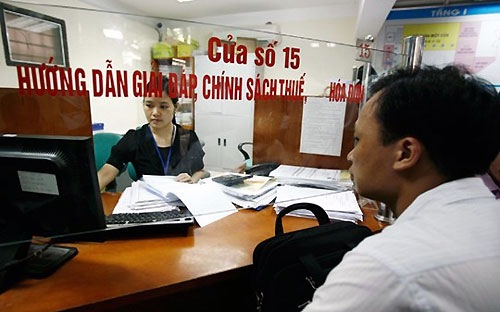Partnerships are a type of business entity founded based on the trust of its partners. Below are the key points to know when establishing a partnership in Vietnam.
.png)
Partnership and things to know when establishing a partnership in Vietnam (Illustration)
1. What is a Partnership?
According to Article 172 of the Law on Enterprises 2014 (Article 177 of the Law on Enterprises 2020 effective from January 1, 2021), a partnership is a type of enterprise in which:
- There must be at least 02 members who are co-owners of the company, doing business together under a common name. In addition to general partners, the company may have capital-contributing members;
- General partners must be individuals, responsible with all their assets for the obligations of the company;
- Capital-contributing members are only responsible for the company's debts within the amount of capital they have contributed to the company.
Note: A partnership has legal status from the date it is granted the Enterprise Registration Certificate. A partnership is not allowed to issue any kind of securities.
2. Conditions for Issuance of Enterprise Registration Certificate for a Partnership
According to the provisions of Decision 1523/QD-BKHDT, the conditions for the issuance of an Enterprise Registration Certificate for a partnership are as follows:
- The registered business sectors and lines are not prohibited from business investment
- The company's name must be set according to regulations, noting some rules such as: the name includes two elements (type and specific name); prohibitions in naming businesses; foreign language names and abbreviations of the business; duplicate and confusing names.
- The enterprise registration dossier must be valid (including all the establishment registration documents and their contents must be fully declared according to the laws)
- Pay the enterprise registration fee according to regulations on fees and charges.
>>> See more: Procedures for registering to establish a partnership
3. Restrictions on General Partners of a Partnership
According to Article 175 of the Law on Enterprises 2014 (Article 180 of the Law on Enterprises 2020), there are specific restrictions on general partners as follows:
- General partners are not allowed to be the owners of private enterprises or general partners of other partnerships, unless approved by the remaining general partners;
- General partners are not allowed to act on their own behalf or on behalf of others to conduct business in the same sector as the company to profit or serve the interests of other individuals or organizations;
- General partners are not allowed to transfer part or all of their capital contribution in the company to others without the approval of the remaining general partners.
4. Organizational Structure of a Partnership
The organizational structure of a partnership includes:
- Members' Council: comprising all general partners and capital-contributing members;
- Chairman of the Members' Council cum Director or General Director: must be a general partner elected by the Members' Council.
The Members' Council is the supreme authority and decides all business matters of the company. General partners have the right to represent the company legally and to organize and manage daily business activities. Any restrictions on general partners in conducting daily business activities of the company are only effective with third parties if that third party is aware of such restrictions.
5. Assets of a Partnership and Capital Contribution Obligations
Article 174 of the Law on Enterprises 2014 (Article 179 of the Law on Enterprises 2020) stipulates that the assets of a partnership include:
- The capital contributed by the members which has been transferred to the company;- Assets established under the company's name;
- Assets obtained from business activities conducted in the company's name by general partners and other business activities conducted in the individual names of general partners;
- Other assets as provided by law.
Additionally, according to Article 73 of the Law on Enterprises 2014, general and capital-contributing members must contribute the full amount of capital and on time as committed. General partners who fail to contribute the committed capital fully and on time causing damage to the company must compensate for the damage.
If a capital-contributing member fails to contribute the full and timely committed capital, the unpaid amount is considered a debt of that member to the company; in this case, the relevant capital-contributing member may be expelled from the company as decided by the Members' Council.
6. Partnerships Can Admit New Members
According to Article 181 of the Law on Enterprises 2014 (Article 186 of the Law on Enterprises 2020), a partnership can admit new general partners or capital-contributing members, provided that the admission is approved by the Members' Council. New general partners must jointly bear responsibility with all their assets for the company's debts and other property obligations, unless agreed otherwise between the new member and the existing members.
Note: General partners or capital-contributing members must pay the committed capital contribution to the company within 15 days from the date of approval (unless the Members' Council decides on a different period).
>>> See more: 6 Things to Know When You Want to Establish a Private Enterprise
7. Cases Where General Partners Can Lose Their Membership in a Partnership
According to Article 180 of the Law on Enterprises 2014, the membership of a general partner is terminated in the following cases:
- Voluntary withdrawal from the company;
- Death, as declared missing, limited legal capacity or loss of civil legal capacity by the court;
- Expulsion from the company;
- Other cases as prescribed by the company charter.
Article 185 of the Law on Enterprises 2020 adds that a general partner's membership will also terminate if they serve a prison sentence or are banned from practicing or doing certain jobs by the court.
A general partner has the right to withdraw capital from the company if approved by the Members' Council. In this case, the member wanting to withdraw capital must notify in writing at least 6 months before the withdrawal date; the withdrawal can only occur at the end of the financial year and after the financial statements of that year have been approved.
Additionally, a general partner can also be expelled from the company in the following cases:
- Inability to contribute capital or failure to contribute capital as committed after a second request from the company;
- Violating the restrictive rules on the rights of general partners;
- Conducting business dishonestly, carelessly or engaging in other inappropriate activities that seriously harm the interests of the company and other members;
- Failing to perform the obligations of a general partner properly.
Note: For 2 years from the date of termination of general partner status due to voluntary withdrawal from the company or expulsion, the individual remains jointly liable with all their assets for the company's debts incurred before the termination of the membership.
Le Vy
 Article table of contents
Article table of contents








.Medium.png)
.Medium.png)
.Medium.png)
.Medium.png)
